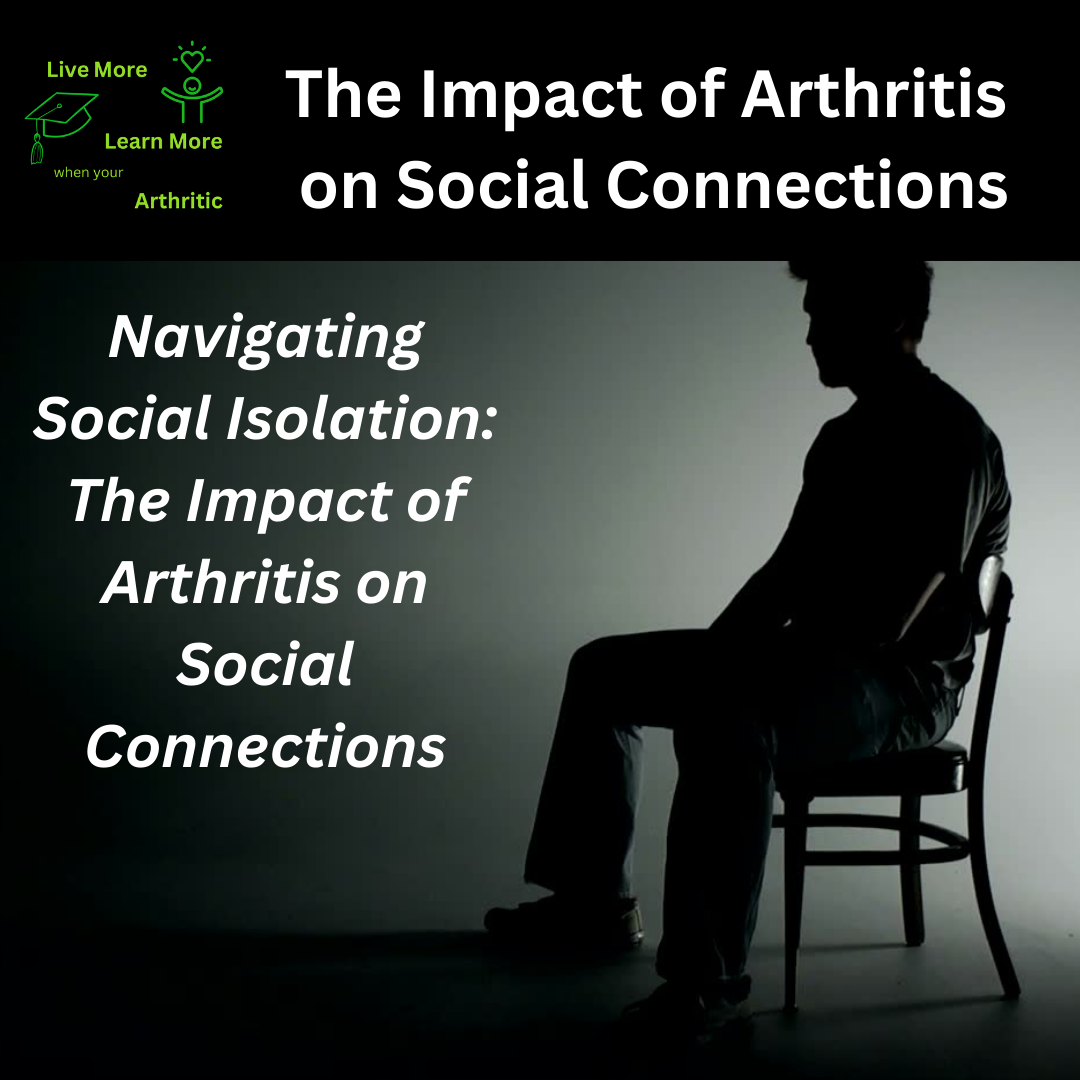
The Impact of Arthritis on Social Connections
Arthritis, a condition characterized by joint inflammation, pain, and stiffness, presents significant physical and emotional challenges. These challenges often extend to social interactions, potentially leading to social isolation. For those living with arthritis, maintaining social connections is vital for overall well-being. Understanding how arthritis influences social dynamics helps affected individuals and their support networks navigate these complexities more effectively.
 Physical Limitations and Social Withdrawal
Physical Limitations and Social Withdrawal
Reduced Mobility
Arthritis can drastically affect an individual’s ability to move, which directly impacts their social life. The pain and stiffness associated with the condition create physical barriers that make participating in activities such as walking, dancing, or even standing for long periods difficult. This can discourage individuals from attending social events or engaging in community activities, contributing to a sense of isolation.
Moreover, people with arthritis often fear judgment from others. They might worry about being perceived as less capable or receiving pity, which can lead to self-imposed isolation. The anticipation of such judgments can be daunting, making individuals hesitant to put themselves in social situations where their limitations might be on display.
Fatigue and Energy Depletion
Chronic fatigue is a common symptom of arthritis, significantly reducing the energy available for social engagements. This fatigue isn’t just physical but also mental, making socializing feel exhausting. People with arthritis often have to prioritize their limited energy for essential tasks like work, medical appointments, and daily self-care. This need to conserve energy can result in withdrawing from social activities, further isolating the individual from their support network.
Psychological Impact
Emotional Toll
The ongoing challenges of managing arthritis can take a significant emotional toll. The constant pain and limitations can lead to stress, anxiety, and depression, which in turn intensify the desire for solitude. These emotional struggles can make it difficult to maintain a positive outlook and engage in social interactions.
Changes in appearance or physical abilities due to arthritis can also impact self-esteem. When individuals feel less confident about themselves, they are less likely to seek out social interactions, fearing negative judgments or rejection.
Fear of Burdening Others
Individuals with arthritis may also experience a fear of burdening their friends or family with their needs. This reluctance to seek help or share their struggles can lead to social withdrawal. They may choose isolation over risking the possibility of inconveniencing their loved ones, which can strain relationships. The fear of being a burden can create a cycle of isolation and loneliness, as the individual withdraws to protect others from perceived inconveniences.
Communication Barriers
Difficulty Expressing Needs
Effective communication is often hindered by the pain and discomfort associated with arthritis. When individuals struggle to articulate their needs or preferences in social settings, it can lead to misunderstandings. Friends and family might misinterpret withdrawn behavior as disinterest or unfriendliness, exacerbating feelings of isolation.
Strategies for Overcoming Social Isolation
Open Communication
Encouraging open communication is crucial for overcoming social isolation. Individuals with arthritis should express their needs and challenges to their friends and family. This fosters understanding and helps build supportive relationships. Educating peers about arthritis can also dispel misconceptions and promote empathy, making social interactions more inclusive and understanding.
Adaptive Socializing
Choosing activities that accommodate physical limitations can help individuals with arthritis remain socially active without discomfort. Inclusive activities might include seated exercises, game nights, or other low-impact events. Having flexible plans is also important, as it allows for adjustments based on how an individual feels on a given day, reducing the pressure to cancel or overextend themselves.
Building a Support Network
Connecting with peers who face similar challenges can provide a sense of community. Joining arthritis support groups, either in-person or online, allows individuals to share experiences and advice. Involving caregivers in social plans can also ease logistical concerns and enhance the overall social experience, providing additional support and understanding.
Supporting Individuals with Arthritis
Empathy and Understanding
Friends and family play a crucial role in supporting individuals with arthritis. By recognizing the challenges associated with the condition and offering empathy, they can help mitigate feelings of isolation. Flexibility and patience in social interactions are key, allowing individuals with arthritis the space they need to navigate their condition without pressure or judgment.
Conclusion
Social isolation is a significant aspect of living with arthritis, fueled by both physical limitations and emotional impacts. Fostering understanding, open communication, and adaptive socializing strategies can help individuals with arthritis maintain meaningful connections. The support of friends, family, and the broader community is essential in mitigating the effects of social isolation and promoting a sense of belonging and inclusion.
- Arthritis Foundation. “Understanding Arthritis.” Retrieved from https://www.arthritis.org/diseases/understanding-arthritis.
- Centers for Disease Control and Prevention (CDC). “Arthritis: Meeting the Challenge.” Retrieved from https://www.cdc.gov/arthritis/basics/index.html.
- Mayo Clinic. “Arthritis: Causes, Symptoms, and Treatment.” Retrieved from https://www.mayoclinic.org/diseases-conditions/arthritis/symptoms-causes/syc-20350772.
- National Institute of Arthritis and Musculoskeletal and Skin Diseases (NIAMS). “Arthritis and Rheumatic Diseases.” Retrieved from https://www.niams.nih.gov/health-topics/arthritis.
- American Psychological Association. “Chronic Illness and Mental Health: Recognizing and Treating Depression.” Retrieved from https://www.apa.org/helpcenter/chronic-illness.

